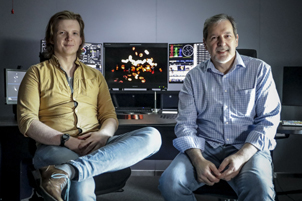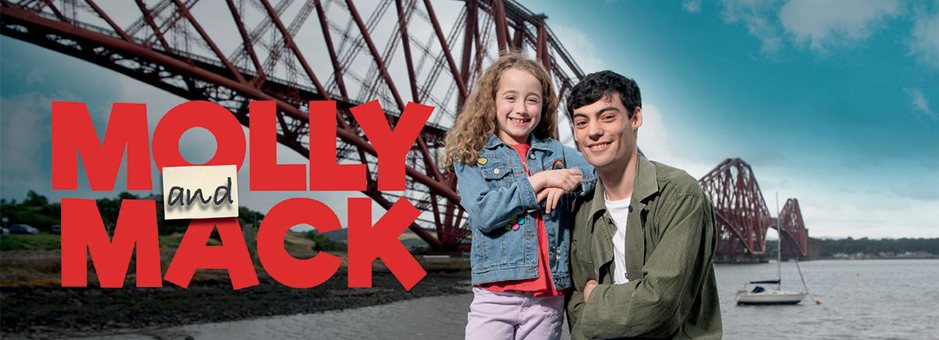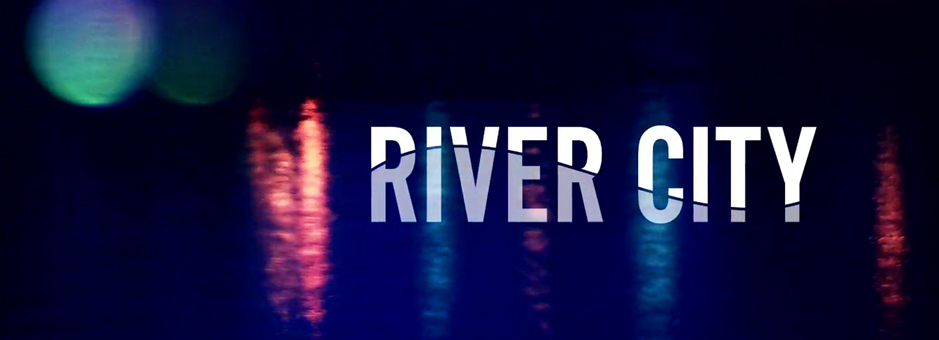Meet The Colourist
Tom Nicol and Mike Trevett
BBC Street Post, Glasgow
Colourists Tom Nicol and Mike Trevett are based in the colour and finishing suites at BBC Scotland’s in-house post-production facility, BBC Street Post in Glasgow. The company recently upgraded to a brand new 4K HDR Baselight system and implemented render-free circular workflows.
Tom and Mike have graded a wide variety of content that ranges from BBC Scotland drama River City, CBeebies Molly and Mack, and BBC Studios’ returning series Trust Me I'm a Doctor.
Tell us a bit about BBC Street and BBC Scotland.
BBC Street is a facility that sits within BBC Scotland providing post-production services and support to both internal and external programme makers. We work with external clients as well as internal productions that are broadcast across national and international BBC services, BBC Scotland and BBC Alba, the Gaelic language channel and for other broadcasters. We cover a wide range of programmes such as adult and children’s drama, short films, as well as documentary features.
BBC Scotland is a division of the BBC and the main public broadcaster serving a population of over five million people. It falls under three national regions alongside BBC Cymru Wales and BBC Northern Ireland, and provides services to all of Scotland’s major urban municipalities, rural and island communities.
What creative services does BBC Street provide?
BBC Street offers a full range of services including offline and online editing, colour grading, dubbing and delivery across a wide range of programmes.
We support the latest technology across our extensive range of suites and can facilitate programmes across multiple edit suites with on and off-site direct access for collaborative working. We can handle practically any delivery requirement for broadcast.
Our experienced Post Support team offers advice from acquisition through to mastering and delivery, whether it is for full end-to-end service in-house, simply assisting the workflow design or for an on-site editing, delivery or broadcast project.
We began considering our requirements for a new grading facility around 2008/9. After some extensive research of various options, we decided to engage with FilmLight back in 2010 to install our Baselight Grading Suite.
Tom Nicol: We wanted to upgrade the Baselight grading suite to improve both the creative & technical functionality and fully enhance the client experience.
Having access to the latest Baselight software allows us to offer the highest-quality service in line with the market and broaden our potential client base. This appeals to clients and encourages productions to finish with us – grade, online, dub and delivery – and it will also help “future-proof” us for new business requiring 4K/HDR grading and delivery.
How does Baselight TWO fit into BBC Scotland’s post workflow?
Introducing Baselight TWO into our workflow has opened up a variety of flexible workflow options for us.
As well as the upgrade, BBC Street has also implemented render-free circular workflows on many productions, using Baselight for Avid plugins in multiple rooms. This means editorial and finishing staff see the latest grade in context, and Avid editors can make tweaks without round-tripping the content to the grading suite — saving the need for extra transcoding and rendering steps.
Baselight’s BLG format makes this all possible, which retains all content in its native form throughout until the deliverables are created. And the Baselight Lens, when pointed at a directory of BLG files, enables Baselight for Avid to apply the correct grade to each Avid clip automatically.
Baselight TWO has really made our work a lot easier – we use it for effects and light compositing work, too. We also use Baselight in rescue work, especially at the production stage when shooting challenges arise.
Being able to grade a variety of footage shot on different cameras, with archive thrown in, and know that you’ll have the assurance of a uniform scene-referred working experience, and that what you see is what you will get when it comes out the other end, is valuable on a lot of levels.
What benefits do you think Baselight 4K HDR will bring?
Tom Nicol: Broadcast timescales can be very tight. The Baselight approach makes the very best of the time available. We can address more finishing requirements in the grading suite, and it reduces time spent on correction and matching sources, so more actual grading can take place – and in 4K/HDR!
What was it about Baselight TWO that the BBC Scotland/your colourists like more?
Mike Trevett: The new Baselight TWO with its version 5 release is a fundamental improvement on the previous version, retaining everything about the software that we enjoyed from an operational standpoint. The new FilmLight colour spaces and the improvements made to the already excellent Colour Space Journey are spot on, enhancing the experience of both the colourists and the programme makers.
I find that FilmLight's colour science and colour space journey is truly unique – its colour management and speed is outstanding and gives an incredible advantage. The design of the Blackboard is excellent, and I like the fact that I can customise my user experience in very fine detail. It is also broadcast workflow-friendly and really powerful. The support from FilmLight is also first-rate.
Why is 4K/HDR important for the work you do?
Our ambition is to keep up with the ever-advancing world of production both inside and outside of the BBC Television environment. It is essential that we are able to respond to client needs - and this technology ensures we are future-ready, thus enabling us to broaden our potential client base.
Not to mention that working with 4K HDR material is a joy.
What sort of projects do you work on at the moment?
We work on virtually everything across a wide range of content that includes titles such as the BBC Studios’ returning series Trust Me I'm a Doctor, the long -running BBC Scotland ongoing drama River City, CBeebies Molly and Mack, including many documentaries and short films.
Tom Nicol: I love the powerful and flexible new FLUX management system as it makes it so easy to manage large scale media. The Base Grade has also become a ‘go to’ for me and has hugely improved my approach to the grading the continuous drama series River City. And the addition of the vector paint utility, with its trackable colour clone and matte brushes used for touching up imperfections in the skin, is a gift.
Join In
If you want to participate in our MTC programme, we'd love to hear from you. Contact:
Alexa Maza
e: [email protected]

“Broadcast timescales can be very tight. The Baselight approach makes the very best of the time available. We can address more finishing requirements in the grading suite, and it reduces time spent on correction and matching sources, so more actual grading can take place.”
Details
Colourist: Tom Nicol and Mike Trevett
Role: Colourists
Web: BBC Street Post





